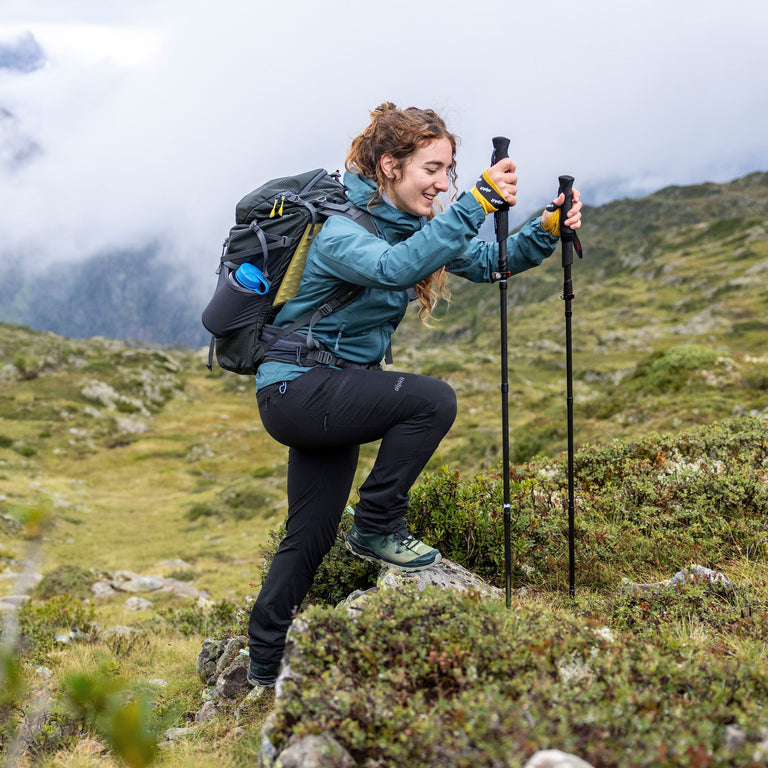
Personally, I am not that bothered about wild camping on Dartmoor. I’d probably pick a dozen or more places in England where I’d rather roll out my bivvy bag and sleep under the stars.
Alpkiteer Adventurer Al Humphreys on the injustice and absurdity of being excluded from our wild places.
Personally, I am not that bothered about wild camping on Dartmoor. I’d probably pick a dozen or more places in England where I’d rather roll out my bivvy bag and sleep under the stars. But when millionaire Alexander Darwall bought 4000 acres of the moor to go along with the 16,000 acres of Scotland he already owned, he set in motion something truly brilliant that I do care deeply about.
I fervently hope that the banning of wild camping on Dartmoor is the catalyst that reinvigorates the land rights movement in England. The indignant outpouring of anger it provoked highlights an even bigger issue than the implications for those who love Dartmoor. Losing that tiny scrap of access has woken people up to the injustice and absurdity of being excluded from almost all of our wild places.
We do have an excellent network of footpaths to enjoy, but they are mere threads across the beautiful canvas of our country. 92% of that land is legally off-limits to us, as are 97% of our rivers. If people cannot access nature, they cannot connect with it, and will not engage with the biodiversity crisis caused by the way we treat our landscape.
If people do not care about nature, or feel a connection and responsibility towards it, then of course a few will be more inclined to drop litter and leave gates open. Nature remains such a low priority to the government that less than £2000 a year is spent promoting the Countryside Code and educating people how to act responsibly in the great outdoors that all of us reading this love, and yearn to spend time in.

So what can we do about it, beyond ranting with words and preaching to the already converted? A few suggestions:
- Get out there and wild camp! I have been bivvying and wild camping all over the country for many years, trespassing discretely and politely, with no problems at all. Evangelise about it, encourage others, and teach them how to do it properly.
- Leave a positive trace. This is an important escalation from the established leave no trace convention. Leave the landscape better than you found it. This not only includes tidying up litter, but also having courteous, open, positive discussions with farmers, landowners or hikers you meet.
- Make a noise. We all feel strongly about these issues, but getting involved with campaign groups is far more effective than just getting cross on your own. Sign up online with Right to Roam, get involved with Trash Free Trails, and send a letter to your MP to let them know that a fair and responsible access to nature is important for everyone.
- Educate yourself. I read The Trespasser’s Companion. I didn’t really like the title of the book, as I’m too wimpy and conformist to be a rebel or a trouble-maker but I loved the book, it made me furious and motivated in equal measure, and I have never made so many notes in any book that I’ve read.
Scotland has an enlightened Outdoor Access Code. Much of Scandinavia enshrines every person’s right to roam, to forage, to swim, to paddle, and to wild camp responsibly. That we in England have meekly allowed those simple rights to be removed is astonishing. Alexander Darwall has done us all a great favour by drawing a line in the Dartmoor mud for us. Enough. No more. It is time for everyone to be able to enjoy, to share, and to care for the wild places that mean so much to us.



![Definition [Mens]](http://eu.alpkit.com/cdn/shop/files/Definition-men-2.jpg?v=1764357328&width=768)

![Definition [Womens]](http://eu.alpkit.com/cdn/shop/files/Definition-women-3.jpg?v=1764357395&width=768)
![Balance [Mens]](http://eu.alpkit.com/cdn/shop/files/balance-mens-2025-reef.jpg?v=1768938614&width=768)
![Balance [Mens]](http://eu.alpkit.com/cdn/shop/files/Balance-mens-1.jpg?v=1768938614&width=768)
![Balance [Womens]](http://eu.alpkit.com/cdn/shop/files/balance-womens-2025-black.jpg?v=1768938686&width=768)
![Balance [Womens]](http://eu.alpkit.com/cdn/shop/files/Balance-womens-3.jpg?v=1768938686&width=768)
![Fortitude [Mens]](http://eu.alpkit.com/cdn/shop/files/fortitude-mens-2025-alder.jpg?v=1768849690&width=768)

![Fortitude [Womens]](http://eu.alpkit.com/cdn/shop/files/fortitude-womens-2025-alder.jpg?v=1764270237&width=768)









![Gravitas [Mens]](http://eu.alpkit.com/cdn/shop/files/mens-gravitas-2025-chilli.jpg?v=1765566317&width=768)
![Gravitas [Mens]](http://eu.alpkit.com/cdn/shop/files/gravitas-location-1-RETOUCH.jpg?v=1765566317&width=768)
![Gravitas [Womens]](http://eu.alpkit.com/cdn/shop/files/womens-gravitas-reef.jpg?v=1764270267&width=768)





